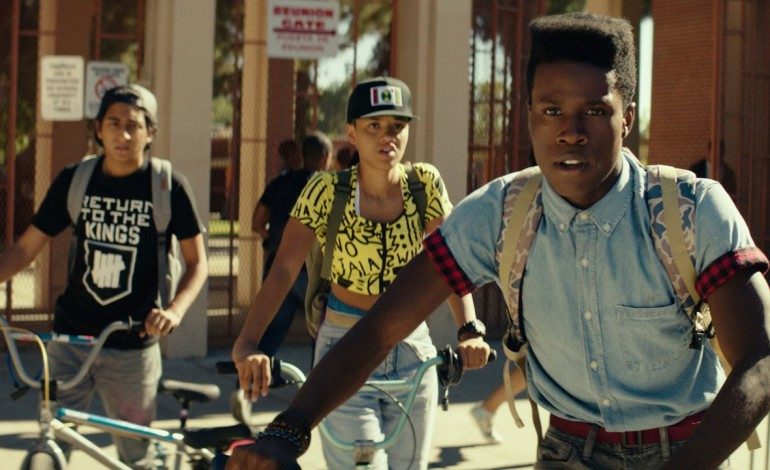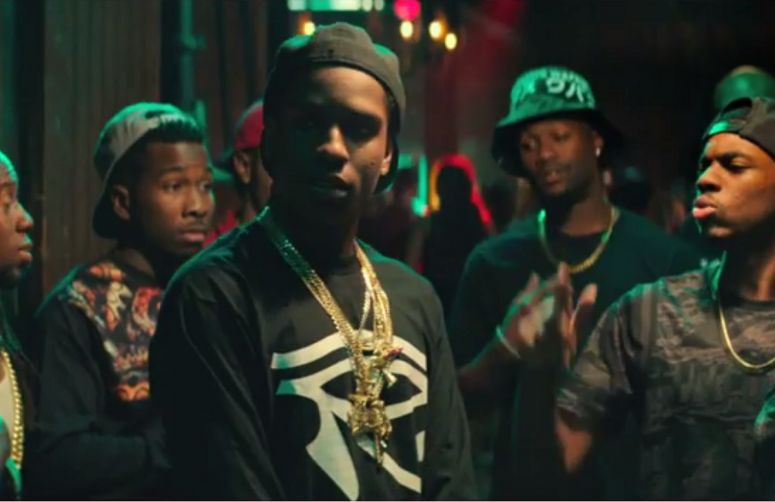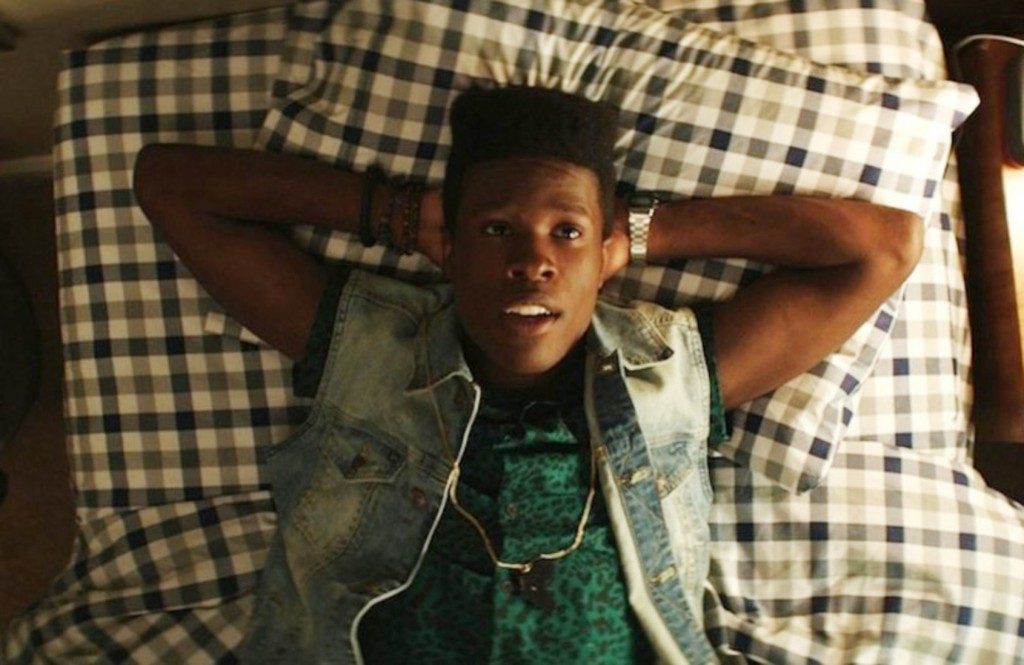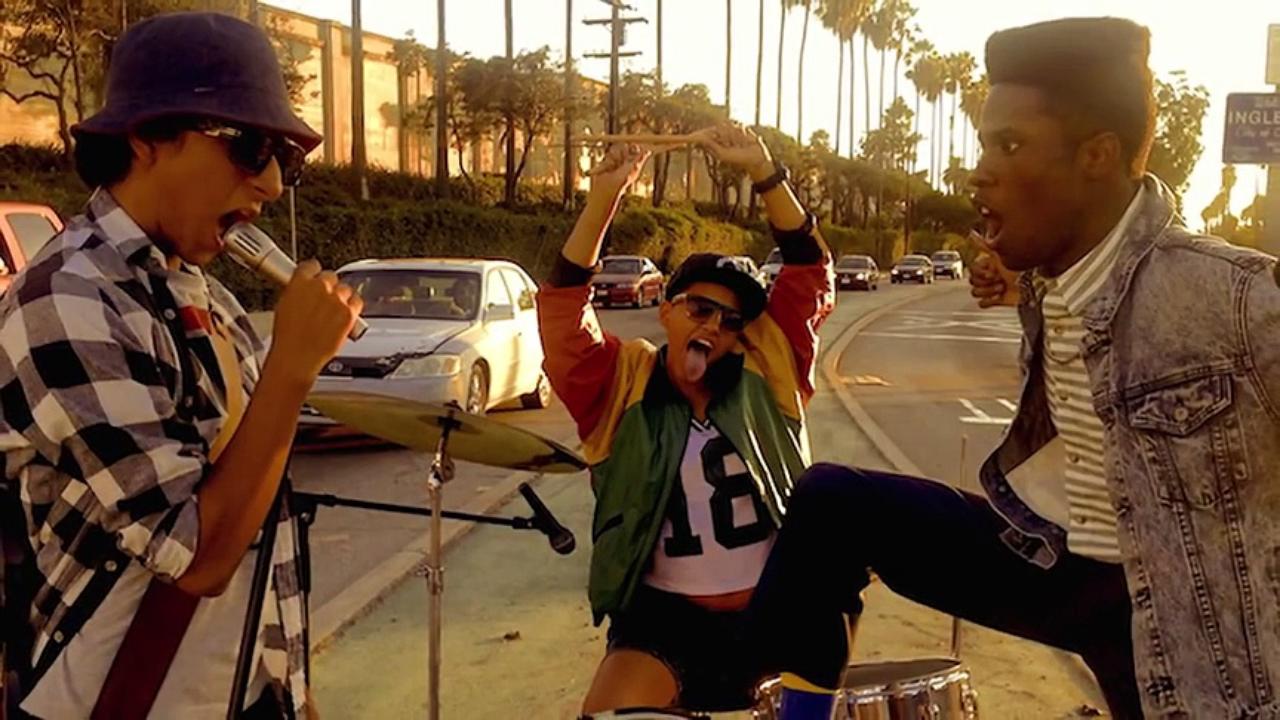

In many ways, Dope is a very much like the coming-of-age tales that came before it. It’s about high school misfits on the cusp of adulthood who experience sex, drugs and danger, and in the end confront truths about themselves and the world around them. This is very much by design. What sets Dope apart is how well it integrates these elements into a wild ride that manages to be infectiously entertaining while providing some of the most salient commentary on race and identity in modern film.
Shameik Moore stars as Malcolm, a ‘90s hip-hop obsessed nerd growing up in Inglewood, California. Malcolm and his friends Diggy (Kiersey Clemons, Extant) and Jib (Tony Revolori, The Grand Budapest Hotel) aren’t your typical Inglewood students. They collect comic books and records, play in a punk band, and do well in school. Malcolm has set his sights on Harvard; he’s “different.” Chasing a girl, Malcolm and his friends crash the birthday party of a drug dealer named Dom (A$ap Rocky) shortly before a rival gang turns the club into a shooting gallery. The three escape, but not before Dom hides several pounds of dope in Malcolm’s bag. Unable to turn to the police, and with rival gangs looking for the drugs, Malcolm, Diggy, and Jib come up with a unique solution to their problem: sell the dope.
The fact that Dope works at all is a miracle. It’s a mélange of tonal shifts and complicated themes wrapped inside a plot that spins out rapidly in multiple directions. The fact that Dope works well is a testament to the talent involved. Writer/Director Rick Famuyiwa (The Wood) has crafted a tale that feels both profoundly personal and immensely relatable. Despite its relentless pace, Dope feels more like a character study that it does an action adventure. Malcolm’s misadventures feel organic, putting the emphasis not on the mechanisms of society out of his control, but on his responses to them. The decision to lean on the strength of the film’s characters and not its convenient coincidences, of which there are several, gives Famuyiwa the latitude he needs to push the film forward at breakneck speed.
But even the wildest rides aren’t fun unless you enjoy the company. Thankfully, Famuyiwa has assembled one hell of a cast. Shameik Moore is a powerhouse of talent. His performance as Malcolm exhibits a depth and complexity seen only rarely in films today, creating what one of the most genuine and deeply felt characters in recent memory. He’s certainly not alone; Dope features a sprawling and impressively strong cast, anchored by Moore, Kiersey Clemons, and Tony Revolori. Clemons is electric and infectiously likeable as Malcolm’s razor sharp and fiercy loyal friend Diggy, a lesbian who is regularly mistaken for a boy. Revolori caught international attention in The Grand Budapest, and his turn as Jib proves he’s an actor with range, and worth keeping an eye on. Other standouts include a surprising first time performance from the rapper A$ap Rocky and a fun appearance from Blake Anderson (Workaholics), one of the film’s only white characters who gleefully embodies entrepreneurial stoner culture.
Dope is a film that drips style, and I’m not just talking about the ‘90s flattop Malcolm rocks throughout the film. The film employs split screens, voice over, speed ups, slow downs, and freeze-frames. One particularly effective scene is told through different media players, memes, and gifs. The film’s innovative editing, by Lee Huagen, injections an energetic beat into Rachel Morrison’s exceptionally rich cinematography.
All this is punctuated by an excellent soundtrack that blends 90’s hip-hop, modern rap, and original music to great effect. Pharrell Williams, who wrote the Oscar nominated song “Happy” for Despicable Me 2, produced four original songs with Moore, Clemons, and Revolori, as the trio’s fictional band Awreeoh (a much more fun way to spell Oreo). The three leads are all musicians in their own right, and the results are amazingly catchy. I’d be the first in line for a full length Awreeoh album.
It might be steeped in ‘90s culture, but Dope is an incredibly modern film, not just in its style, but also in its subject matter. Black identity, class mobility, urban education, religious pressure on gay youth, digital currency, cyber security, drug culture, viral content… Dope touches on all these contemporary issues, and it does so in a way that’s undeniably entertaining. Dope isn’t just a smart film, or a fun film, or a well-acted film, it’s an important film.
Verdict: 5 out of 5
Dope has a lot to say about identity and perception, both of one’s self and of others. For Malcolm, his journey begins as one from Inglewood to Harvard, from somewhere he doesn’t belong, to somewhere he thinks he does. Dope posits that things aren’t so simple, asking whether or not you can stand apart from your community while being a part of it. Early in the film, a guidance counselor asks Malcolm, “Who do you think you are?” Malcolm’s journey isn’t one of escape, its one of self-discovery. Rick Famuyiwa’s film plays with a lot of big ideas and it paints a picture of America that feels modern and authentic. Dope is vibrant and energetic, and one of the best films of the year. Consider it required viewing.



